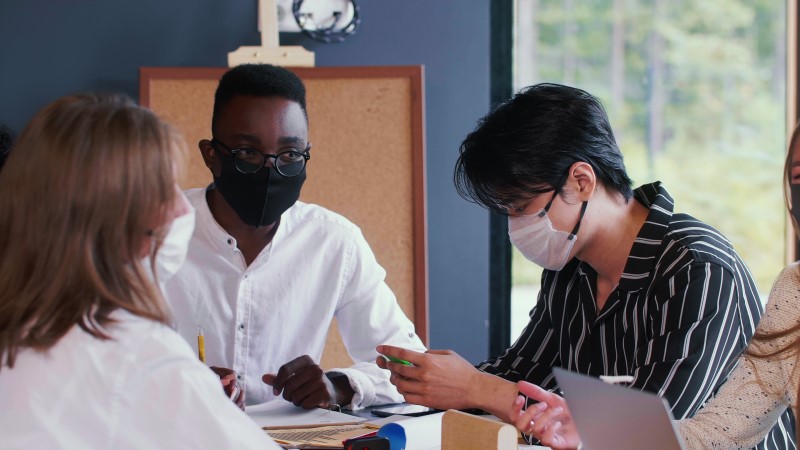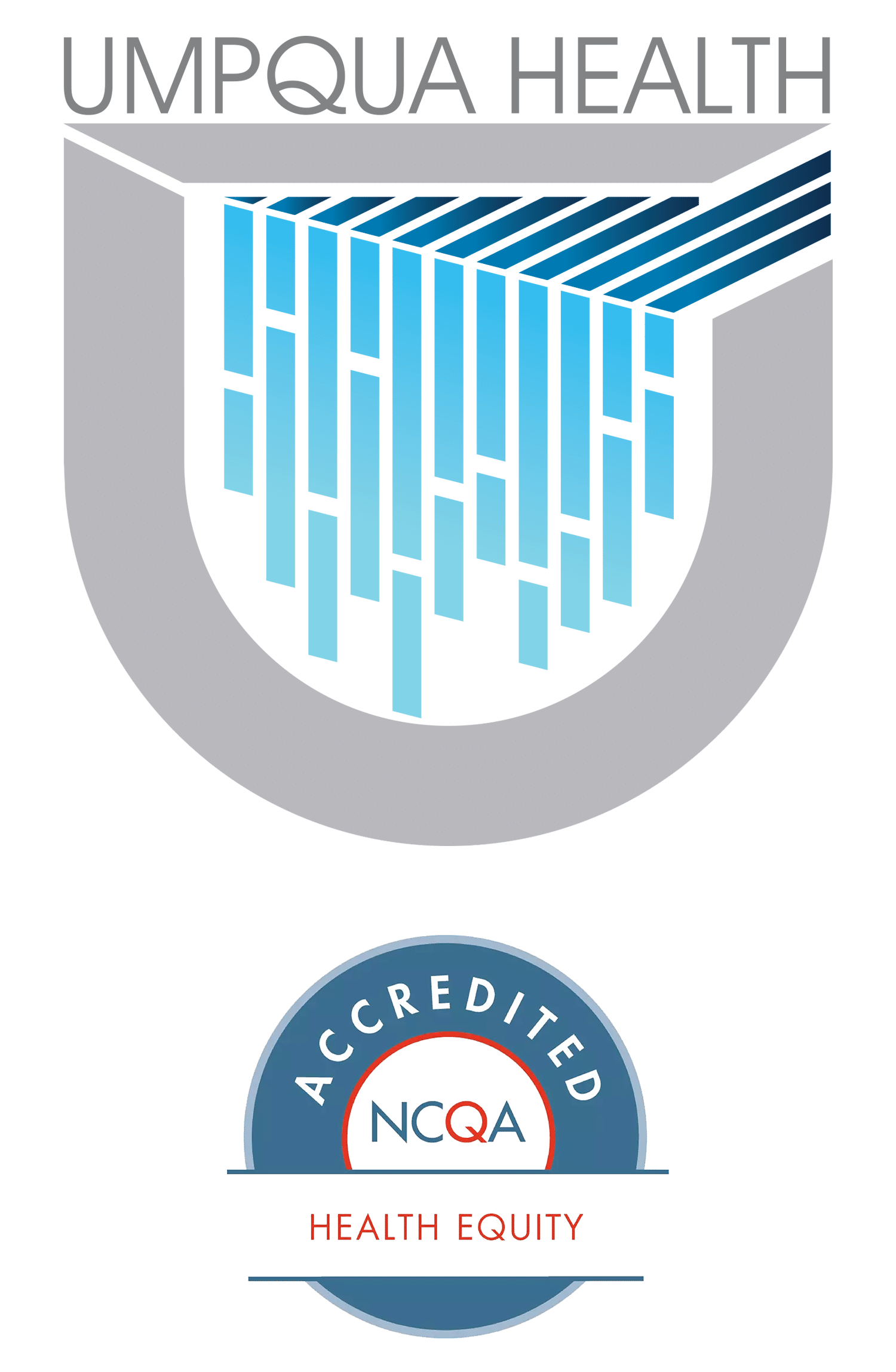Provider Newsletter – June 2021
Practice Tactics
Member Billing
Providers rendering services to members of Umpqua Health Alliance (UHA) under the Oregon Health Plan (OHP) may not seek payment from the member for the following:
- Any services covered by Medicaid
- Missed appointments
- Services or treatments that have been denied due to provider error (e.g., required documentation not submitted, prior authorization not obtained, etc.).
Agree to Pay Waiver Requirements
For situations in which a provider is able to bill members, please see OAR chapter 410, divisions 120 and 141, or any other Division program rules. In these instances, the provider must inform the member in advance of all of the following:
- The requested service is a covered service, and the appropriate payer (the Division, UHA, or third party payer) would pay the provider in full for the covered service; and
- The estimated cost of the covered service, including all related charges, the amount that the appropriate payer would pay for the service, and that the provider cannot bill the member for an amount greater than the amount the appropriate payer would pay; and
- That the member knowingly and voluntarily agrees to pay for the covered service;
- The provider documents in writing, signed by the member or the member’s representative, indicating that the provider gave the member the information described above; that the member had an opportunity to ask questions, obtain additional information, and consult with the member’s caseworker or member representative; and that the member agreed to privately pay for the service by signing an agreement incorporating all of the information described above. The provider must give a copy of the signed agreement to the member. A provider may not submit a claim for payment for covered services to the Division or to the member’s MCE or third party payer that is subject to the agreement.
- The member must sign the provider-completed Agreement to Pay (OHP 3165 or 3166) or a facsimile. These can be found on UHA and OHA’s website.
- The completed OHP 3165, 3166 or facsimile is valid only if the estimated fee does not change and the service is scheduled within 30 days of the member’s signature.
- Providers must make a copy of the completed OHP 3165, 3166 or facsimile available to the Division or UHA upon request.
TANF Grant
UHA’s Behavioral Health Department is proud to share that our pilot program grant application was chosen by Oregon Health Authority to receive an award of $1.25 million dollars to increase access to Behavioral Health services for recipients of Temporary Assistance for Needy Families (TANF). This grant will strengthen partnerships with Oregon Department Health Services (ODHS) as well as contracted behavioral health providers to promote engagement in services, foster greater integration in treatment, and eliminate barriers to care. Members who engage in this program will additionally be eligible to receive financial assistance for childcare, technology to engage in telehealth services, obtain peer delivered services through Family Support Partners from Oregon Family Support Network, and be able to request funding for items that are not covered through other entities or organizations in Douglas County. This pilot program is anticipated to begin in Early Summer and we are currently hiring two additional Behavioral Health Care Coordinators and a Community Health Worker to accomplish this work. Please visit our website if you are interested and share the link below with any providers whom you might recommend for these positions: https://www.umpquahealthcareers.com/careers/
SOC Breakfast Survey
On the third Thursday of each month, community partners who serve youth and families come together for breakfast at 7:30AM to support transformation in Douglas County. There is diverse cross-sector representation, with attendees involved in healthcare, social services, educational, tribal, to religious organizations; more than 43% of attendees shared that they first started attending the breakfast in 2018. Attendees have shared how much they appreciate the cross-sector collaboration, getting to know people from other agencies, and that the new partnerships they developed helped them to expand the impact of their own organizations. For a glimpse at what you might learn, use the following link to the System of Care Breakfast Presentation February 2021
Though the pandemic may have changed the way we come together at the System of Care Breakfast, UHA and The Ford Family Foundation have maintained this tradition virtually. From the attendees polled in April, 57% indicated they would continue engaging in the System of Care Breakfast whether it be an in-person or virtual experience, although the preference overall was to return to in-person gatherings. This may be attributable to the fact that the majority of participants feel as though the breakfast is a unique opportunity to engage, learn, and connect firsthand to community organizations and the services they offer. In discussing how the connections they made in the System of Care Breakfast were valuable to them, attendees specifically noted how it has fostered learning about new programs and services, building stronger relationships, re-kindling previous relationships, identifying and obtaining local resources, and being able to make referrals for children and families to ultimately have a larger and more meaningful impact on their community. We continue to welcome new participants interested in an opportunity to network, learn, and become more involved through the System of Care Breakfast, please send an email to BehavioralHealth@umpquahealth.com
 Clinical Corner
Clinical Corner
Advance Care Planning Coverage for Medicare and Medicaid is Underutilized.
From JAMA Published online May 26, 2021
In 2016 Medicare launched a much anticipated advance care planning (ACP) benefit that pays physicians to counsel patients about living wills, advance directives, and end-of-life care options. During the ACP process clinicians can help patients determine the type of care they would want in a medical crisis or at the end of life and reassure them that their preferences will be observed. Numerous medical and patient advocacy organizations backed the Medicare initiative, asserting that compensation for physicians would encourage proactive end-of-life care discussions. These conversations are associated with patients receiving care that respects their wishes as well as fewer in-hospital deaths and more hospice use.
However, the benefit isn’t being widely used. An analysis of outpatient claims published in Health Affairs found that although ACP billing increased steadily during the first 4 years, only 2.9% of beneficiaries overall had an ACP claim in 2017, including 4.7% who were older than 85 years and 7.2% of beneficiaries who ultimately died that year. Compared with previous studies, the researchers’ data showed smaller differences in the odds between White patients and Black and Hispanic patients having ACP discussions, but the differences were still significant.
What’s Covered
Medicare pays $86 for 16 to 30 minutes of ACP as a stand-alone service at any outpatient visit, subject to a 20% co-payment, with an additional $75 for up to a half hour of additional counseling. [CPT 99497 (base code) CPT 99498 (add on)]
To encourage ACP prior to a serious illness, the co-payment is waived if the service occurs during an annual wellness visit. No limit has been set on the number of ACP claims a beneficiary can have. But to avoid a co-pay, the discussions have to take place during an annual wellness visit, which Medicare covers only once a year. Physicians, nurse practitioners, and physician assistants of any specialty may bill for the service, and they should offer a patient or surrogate an opportunity to decline the discussion. Medicare does not require that counseling lead to the completion of an advance directive, a legal document often called a “living will.”
UHA has a service for its members that ensures that what you start will result in completion:
For referral of your patients to Iris PREMIER ACP services, please contact our Care Coordination team at CaseManagement@umpquahealth.com
 On the Lookout
On the Lookout
For the latest information on COVID vaccination in Douglas County, visit Douglas Public Health Network: http://douglaspublichealthnetwork.org/
For Better Care and Health
The COVID Pandemic has stressed communities at all levels; the Public Health response, so essential, to controlling the spread of disease also highlights the burden in the form of rules that individuals and communities have to endure.
A timely perspective brought forward by Scott Burris, J.D., Evan D. Anderson, J.D., Ph.D., and Alexander C. Wagenaar, M.S.W., Ph.D. in their recent NEJM article – The article homes in on why it’s important to study the impact of rules and law, and its importance for addressing health equity, and to eventually shape the discussion around social determinants of health.
 CME for Thee
CME for Thee
Value-based payment webinar series for providers June 2 and 16
Contact: OHA.VBP@dhsoha.state.or.us
Primary care, behavioral health, and maternity care providers are invited to a five-part webinar series focused on increasing readiness for VBP and taking advantage of the additional flexibility VBPs offer for innovatively redesigning care models. See website for registration, slides and recordings: https://www.oregon.gov/oha/HPA/dsi-tc/Pages/Value-Based-Payment.aspx
- June 2, noon-1 p.m.: VBP for behavioral health providers: How do we keep from being left out?
- June 16, noon-1 p.m.: VBP and maternity care: What have we learned so far?
Speakers: Art Jones, Jeanene Smith, Janet Meyer (Health Management Associates)
Webinar: Diabetes metrics toolkit June 22
Apply quality improvement frameworks and tools for measurable change in diabetes, HBA1C poor control and oral health evaluation for adults with diabetes. Join this hour-long live webinar, led by ORPRN practice facilitators who will walk through how to use the new toolkit in primary care and dental clinical settings and answer your questions. This new toolkit will be available to everyone and has many real-life example improvement projects, templates and inspiration to conceptualize, design and implement your own quality improvement projects. The webinar will be recorded, and the recording will be available after the webinar.
June 22, noon–1 p.m.
RSVP here: https://ohsu.ca1.qualtrics.com/jfe/form/SV_8quiaU227QX62tU
Contact: Laura Ferrara (ORPRN_TA@ohsu.edu)





